Currys recovery signals cautious optimism for the future. RTIH presents the retail technology week in numbers
Do you like numbers? Do you like retail systems news? Then this is the article for you. Including Studenac, Shopify, Target, Amazon, Asda, NCR, Klarna, Evri, Starship Technologies, and H&M.
SEK113.3 billion…H&M’s sales improved in the second quarter of its FY2023/24, growing 3.5%, absorbing the decline during Q1 and allowing its H1 sales to return to growth, albeit timid, of 0.7%, reaching SEK113.3 billion.
However, its performance remains far behind that of its main competitor Inditex, which rose 7.1% in the quarter to the end of April, as H&M’s lacklustre designs struggle to excite shoppers.
While the group’s operating margin continued to improve, growing from 4.9% to 8.1%, it missed its target of 10%, which combined with a disappointing June sales decline of 6% in local currencies led H&M’s share price to drop around 14% in early morning trade.
Louise Deglise-Favre, Apparel Analyst at GlobalData, says: “After increasing 8% in Q1, the group’s portfolio brands declined 1% in Q2, with the slowdown blamed on strong comparatives last year.”
“This means that the driver of improvement in the second quarter was the eponymous H&M brand itself, thanks to well-received summer ranges, but this was clearly short-lived due to the group’s disappointing sales in June.”
“H&M continues to invest in elevating its core brand’s image, returning to the high-fashion Met Gala event by dressing celebrities such as Awkwafina and Adwoa Aboah, and planning elevated campaigns for its autumn ranges.”
She adds: “However, these marketing efforts need to be combined with a rehaul of its designs to win back lost market share. It also needs to simplify its pricing structure, as currently its mix of premium and value price points creates confusion on the brand’s target consumer.
Eastern Europe was H&M’s most resilient region in H1, with sales rising 11% in local currencies, driven by the region’s growing economies and the reopening of stores in Ukraine.
Southern Europe recorded sales growth of 3%, while Western Europe sales declined 1%, as unfavourable weather and weak consumer confidence dampened consumer demand.
Sales in the Nordics and Asia, Oceania and Africa remained flat, while North and South America revenue declined 4% as consumers preferred cheaper alternatives such as Shein as they continued to grapple with the aftermath of prolonged high inflation.
Deglise-Favre comments: “H&M continues to focus on strengthening its in-store proposition, with plans to continue modernising its stores by incorporating digital services for easy click and collect and returns, and by locally curating product assortments in key locations such as Stockholm, London, New York, Paris and Milan.”
“Online sales continued to account for 30% of the group’s revenue, and the group plans to launch an updated online store to its largest markets this autumn which combined with the improved digital features of refurbished and new stores should strengthen the group’s multichannel capabilities into a more seamless experience for consumers.”
£118 million…Electronics retailer Currys reports that year on year like-for-like sales decreased by 2%. Full-year underlying profit before tax was up 10% to £118 million, and underlying operating profit margin rose 20 basis points to 2.4%.
Guy Lawson-Johns, Equity Analyst, Hargreaves Lansdown, says: “After a year of takeover talk in what has been a tough trading environment, meeting guidance with a 10% rise in full year profit should be considered a good result.”
“The continued recovery indicates potential easing of market headwinds and signal a cautious optimism for the future.”
“Consumers have struggled to justify upgrading appliances, with demand for small electrical goods particularly affected. But an increase in UK consumer confidence, driven by rising economic optimism, suggests that a recovery in discretionary spending may be underway.”
“Even a partial return to the longer-term growth trends Currys previously experienced could significantly benefit the group.”
He adds: “Importantly the Nordics have also shown some signs of life, sharing in the group’s 10% underlying profit growth.”
“But while margins have improved, prolonged weakness in consumer demand will be on everyone’s mind. A continued improvement will need to be seen to before management can say the recovery job is done.”
“The sale of Currys’ Greek operations has positioned the company as a leaner and more focused business entering the new year. As expected, some of the proceeds have been used to pay down the debt levels which have historically weighed on sentiment.”
“Alongside strengthening the balance sheet, the simplification of the business has created bandwidth to expand into new areas.”
“The latest of which has seen Currys become Microsoft's first official retail repair partner in the UK.”
“Tapping into the circular economy may be a shrewd move from an environmental standpoint, but the potential cannibalisation of new business has raised eyebrows. CEO Alex Baldock has dismissed these concerns, but we will be assessing future updates for a clearer view on the long-term impact.”
550…VusionGroup has announced the roll-out of its smart digital labels and solutions at Netto, the Danish discount grocery chain owned by Salling Group.
Salling Group, a partner of VusionGroup for more than 15 years, will deploy SESimagotag’s digital labels and the VusionCloud platform across its 550 Netto locations from Q3 2024 to Q2 2025.
As a result, Netto will be able to display product information, promotions and branding elements.
“We are constantly striving to improve the customer experience in our stores. The solutions from VusionGroup will allow us to provide our customers with clearer product information, more impactful promotions, and a more modern store environment for an enhanced shopping experience,” comments Alan Jensen, Executive Vice President, IT & Digital of Salling Group.
67%…The majority of supply chain and logistics leaders appear optimistic that AI will unlock new benefits. However, 67% believe it may have the greatest impact on those doing administrative roles.
On 6th June, over 150 senior supply chain and logistics professionals, along with industry leaders from the likes of Sainsbury’s and Nestle, came together to discuss this brave new world during an event hosted by SCALA.
Live polling on the day saw 67% of respondents say that colleagues delivering ‘shopfloor’ operations – as opposed to others such as those in managerial or senior leadership positions - will be most impacted by AI.
36…Croatian retailer, Studenac, has announced plans to acquire 36 Decentia stores, continuing its strategy of expanding through acquisitions in the proximity segment. The transaction is pending regulatory approval from the Croatian Competition Agency (AZTN).
If completed, it will strengthen Studenac’s position in continental Croatia, particularly Zagreb, where it will reach more than 130 stores.
Decentia, founded in 2001, posted 2023 revenue of more than €34 million. Its 36 stores have an average of 110 square metres of retail space.
42.3%…Retail leadership is more diverse than ever, according to a new report from the British Retail Consortium and The MBS Group.
This reveals that the percentage of female board level leaders has gone from 32.6% in 2021 to 42.3% in 2024, and the percentage of ethnic minority leaders on boards has nearly tripled from 4.5% to 12% over the same period.
The report looked at diversity of gender, ethnicity, disability, sexual orientation, social mobility, and age. It aims to drive change in the industry by tracking progress made since it first launched in 2021 and identifies what more needs to be done to ensure all individuals have the opportunity to progress and to prosper.
16, 17 and 10…Amazon has announced the dates for its 10th Prime Day event.
From 16th July at 12:01 a.m. PDT through 17th July, Prime members will get exclusive access to millions of deals across more than 35 categories including electronics, kitchen, beauty, and apparel.
Back this year, ahead of the event, Prime members can also request an invitation to access Invite only deals, exclusive Prime Day deals expected to sell out.
“Prime Day is a celebration of the value we bring to members all year long, and features millions of deals across more than 35 product categories as well as discounts on Amazon devices, quality entertainment, groceries, travel, and more during the event,” says Jamil Ghani, Vice President at Amazon Prime.
“In fact, over the course of last year, Amazon customers saved nearly $24 billion from deals and coupons, with Prime members enjoying the vast majority of those savings, including over $2.5 billion during Prime Day 2023.”
1… Shopify merchants can now sell their items to Target shoppers.
Sellers on the commerce platform can apply to join Target Plus, the retailer’s third-party marketplace where merchants can sell and manage orders.
Target is the first major retailer to collaborate with Shopify to introduce its merchants’ products into physical stores. The first Shopify sellers to be featured at Target include True Classic and Caden Lane.
“If you’re selling today, you need to be everywhere potential customers are, period. We’re constantly unlocking opportunities for our merchants to reach new customers wherever they shop,” says Shopify President Harley Finkelstein.
113%…The value of contactless payment transactions will grow by 113% over the next five years, from $7.4 trillion in 2024, according to Juniper Research.
This found that greater contactless payment availability for smaller businesses with Soft PoS (Point of Sale) systems, is powering growth. As access becomes more widespread, users increasingly expect contactless payments, creating a virtuous cycle of increasing use.
The launch of Soft PoS systems, where contactless payments can be accepted using a compatible smartphone, is breaking down cost barriers to small and micro-merchants' adoption of contactless payments, increasing acceptance overall.
Additionally, Juniper Research predicts that Apple’s recent announcement of Tap to Cash for person-to-person payments, and its extensive roll-outs of Tap to Pay on iPhone, will further accelerate this transaction growth.
612…Asda has completed the roll-out of new NCR Point of Sale (PoS) software across its store estate.
In a LinkedIn post, Kevin Besford, Senior Director - Retail Future at Asda, said: “A huge thank you to everyone involved in this extremely ambitious project.”
He added: “This commitment is driving us forward as we continue to build our brand new Asda digital landscape. An even bigger thank you to all our store colleagues who’ve continued to work extremely hard in serving our customers through this time of change.”
“A massive well done to everyone involved in the Asda front end programme, a massive cross functional effort to mobilise across 612 stores.”
The project included 16,674 checkouts, 6,211 physical installs, 27,888 scan and go devices updated, with deployment peaking at 42 stores per week, and over 30,000 colleagues newly trained.
€480 million…Buy now pay later big hitter Klarna has sold Klarna Checkout, its gateway business, to an investor consortium for €480 million.
It claims Checkout has a 40% share in Sweden and 20% across Nordic markets but says the unit was causing channel conflicts with Stripe, Adyen and other PSPs
"Klarna Checkout is very dear to me, and the impact it’s had on our journey is immense. I'm so pleased it's finding a new home, with owners who are carefully handpicked to continue to create outstanding value for our merchant partners. I look forward to working closely with them as they establish the next phase for KCO,” says Sebastian Siemiatkowski, CEO and Co-founder at Klarna.
The buyer consortium is led by Kamjar Hajabdolahi, CEO at BLQ Invest, and includes Systematic Growth, founded by Ashkan Pouya, and serial entrepreneur Martin Randel. Their focus is on investing in and growing innovative Swedish companies.
$59 billion…Based on their shopping habits on social media, Americans have the potential to spend upwards of $59 billion, according to a new study from UserTesting.
The poll of 2,000 US adults found that 68% have shopped through their social media feeds, and the average person would willingly spend a maximum of $262 on any single item they come across.
Respondents were found to use Facebook (85%), Instagram (49%) and TikTok (38%) on a regular basis.
However, 75% admitted a ban on TikTok would have "little to no" impact on how they shop.
Social media users said they like using platforms for shopping because it makes the experience easier or more convenient (33%), they’re already on social media often enough (32%), and because they can see exactly how products are used or how they perform (30%).
People also said they prefer social media shopping because they see better deals offered on social media (26%), it’s more fun and exciting (22%) and it’s easier to search than a physical store (20%).
56,600…UK workers are optimistic about new opportunities and ways of working, but the pace and magnitude of change is overwhelming, according to PwC's Hopes and Fears Survey.
The survey of over 56,600 workers in 50 countries, including 2,000 in the UK, finds that workers recognise the potential of GenAI to improve their efficiency and workload, creating opportunities for employers to drive innovation, with three times as many (57%) workers this year saying that GenAI could help them to be more efficient compared to last year (19%).
In the UK, 41% of workers are facing a significant increase in their workload and 37% believe they need to learn how to use new tools and technology to do their job. 45% feel too much change is happening at once, and 40% don't understand the need for some changes.
Surprisingly, these concerns are more than matched by workers’ optimism for the future. Three out of four workers say they are ready to adapt to new ways of working, whilst 65% are excited about new opportunities.
Indeed, 68% of workers are confident that GenAI will create opportunities to learn new skills, whilst many think it will make them more creative at work and improve the quality of their work (64% and 62% respectively.)
2,000…Target has announced plans to roll-out a new generative artificial intelligence (GenAI) tool to team members at all of its nearly 2,000 stores by August.
This makes it the first major retailer to share that it is bringing this technology to its store team members across the US.
The tool, called Store Companion, is a chatbot designed by Target that can answer on the job process questions, coach new team members, support store operations management and more.
Store Companion's goal is to make the teams' jobs easier and allow them to work more quickly and efficiently, offering faster service and deeper guest engagement.
The initiative is part of Target's broader strategic approach to using GenAI across its business to empower its team, enhance the guest experience and support the company's long-term growth.
£19 million…UK parcel delivery company, Evri, has announced a £19 million investment in new plans to fast track the roll-out of electric cargo bikes.
The move, which is expected to give Evri the UK’s biggest fleet of e-cargo bikes for parcel delivery, are part of a wider £19 million investment in sustainability.
This will see Evri grow its fleet of e-cargo bikes from 33 to 99 and electric vehicles (EVs) from 168 to 270 within the next year.
The firm also has plans to grow its fleet of electric cargo bikes to 3,000 over the next decade - as part of its wider plans to reduce carbon emissions across its network and become a net-zero company by 2035.
Evri has established a dedicated "final mile electrification taskforce" which will spearhead innovative solutions, explore partnerships, and implement strategies to transform last mile deliveries into a zero-emission operation.
46,000…Starship Technologies is promoting the potential of zero emission delivery robots to make last mile delivery greener, cleaner and sustainable. According to a study from Oxford Analtyica, the service has the potential to further reduce CO2 emissions by 46,000 tonnes by 2030.
Starship says that it has reduced carbon emissions in the UK by over 320,000 kg since launching commercial operations in 2018. The company celebrates its 10th birthday next month, and has made the UK one of its global operation centres.




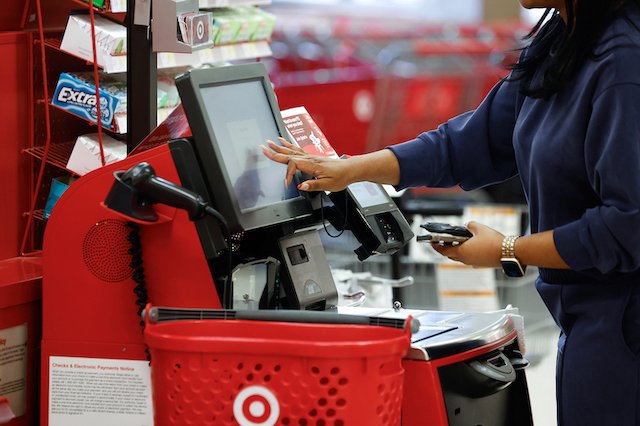

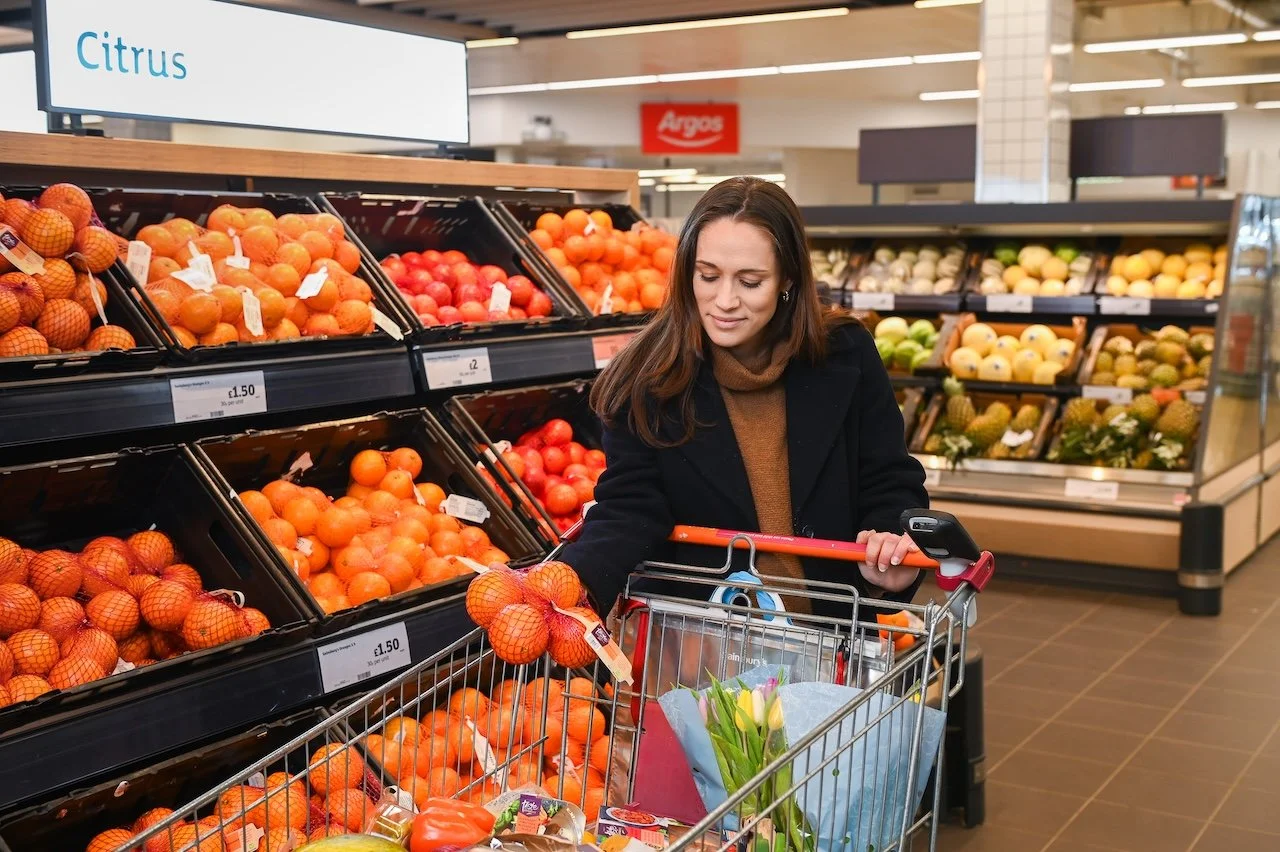
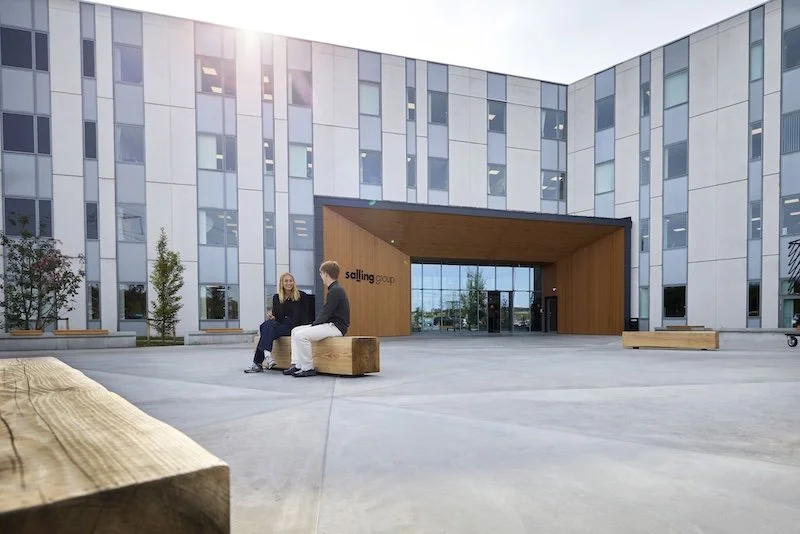


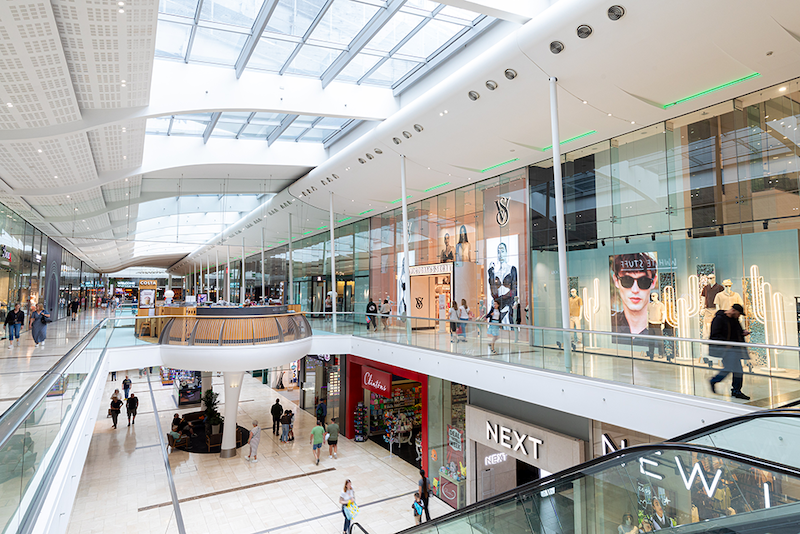

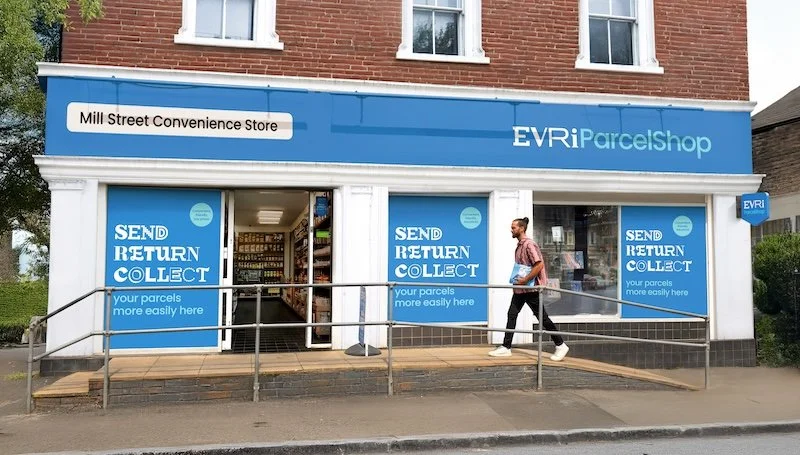
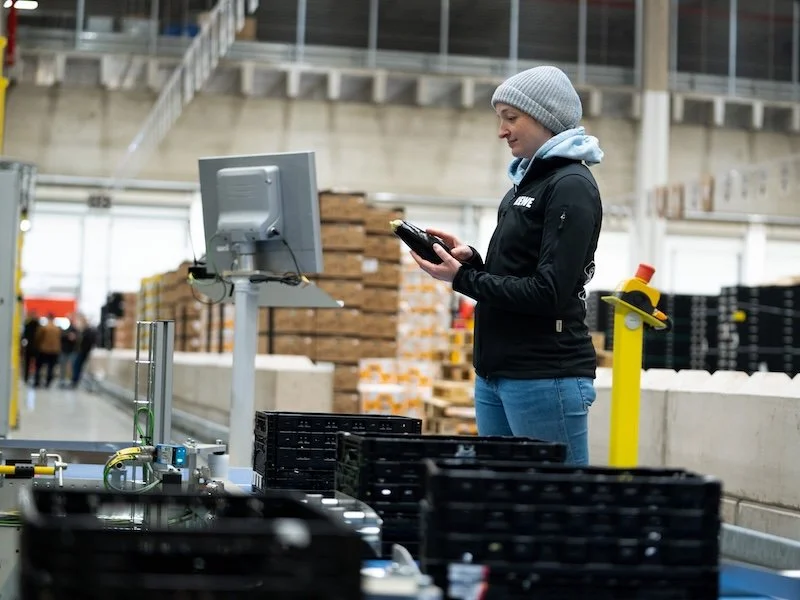




















Continue reading…